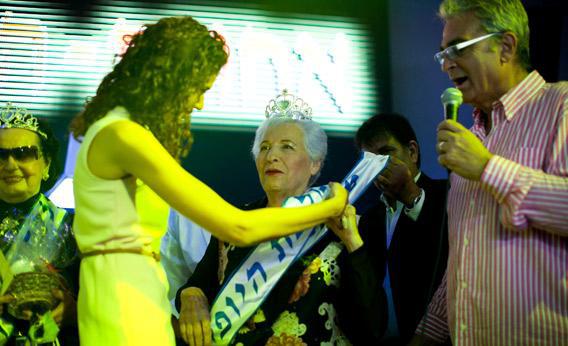Almost the entirety of the second half of my eighth grade experience was putting on what we called the “Holocaust Play.” After spending the previous semester studying the history of the Holocaust, we wrote and starred in an original, and very amateur, production, in which I was somehow cast as the mother of a son who, on the eve of the war, flees to Palestine while his family remains in Eastern Europe.
In addition to confirming for me that I had no business being an actress, participating in the play made me extremely uncomfortable. Unlike many of my friends, I didn’t lose any family in the Holocaust. My family was so American that my saba (grandfather in Hebrew) fought with the American Army during World War II and even liberated some of the camps. When it came to reading Holocaust-themed books like Number the Stars or visiting memorials, I always felt like I could never be sad enough. Like I was always searching for the right way to process and mourn the Holocaust.
Which brings me to yesterday’s “Miss Holocaust Survivor” pageant in Israel. Shockingly, it’s almost exactly what it sounds like: According to the Times, out of 500 women who applied, 14 finalists aged 74-97 who survived World War II were selected to compete for the title of “Miss Holocaust Survivor” based on their stories of survival and later contributions to their communities. And, oh yeah, physical appearance.
As is to be expected, the response has been almost universally critical. Most are balking about the beauty category. “In a country where millions have been touched by the Holocaust, many argued that judging aging women who had suffered so much on physical appearance was inappropriate, and even offensive,” Jodi Rudoren wrote in today’s Times. Shimon Sabag, who organized the pageant, rejected the criticism arguing that “the winners were chosen based on their personal stories of survival and rebuilding their lives after the war, and physical beauty was only a tiny part of the competition.” But doesn’t that make it worse?
To be fair, most of my knowledge of beauty pageants comes from Miss Congeniality, and I imagine this one in Haifa was a bit different, but if someone wants to participate in a beauty pageant, even someone who survived the Holocaust, more power to them. What I found troubling was this idea of competing based on stories of survival. It reminded me of that Curb Your Enthusiasm bit in which a Holocaust survivor faces off with a survivor from the show Survivor. There’s a reason that scene makes you squirm.
This idea of competing about “who had it worse” isn’t anything new. Survivors have been creating “hierarchies of suffering” for decades. As John Leland noted in the Times last year, “There is a tendency to divide into subgroups: Russians from Germans, adult survivors from child survivors, people who survived concentration camps from those who fled ahead of the soldiers.” He’s not the only one to spot this trend. In 2010, Monica Porter wrote in the Jewish Chronicle Online that “there exists a pecking order of Holocaust suffering and child survivors are deemed to be at the bottom.”
Validating this idea of ranked suffering undermines the great personal and collective trauma, reducing it to a pissing match. Someone with a wild and far-out story has not necessarily had a more valuable or emotionally trying experience than someone who survived the war in hiding. What’s the measure? Rudoren writes that, in Israel, news of the pageant “tapped into a core conflict that bedevils this society, where most everyone agrees on the need to keep the memory of the Holocaust central and alive, but not everyone agrees on how.” We may not have figured out how, but this is definitely not it.
